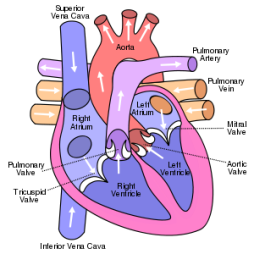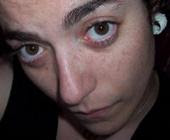|
Cardiomyopathy is a chronic disorder that occurs when the heart weakens and can no longer pump sufficient amounts of blood. Although there are several types of cardiomyopathy, the most common form is dilated cardiomyopathy, in which the heart enlarges to compensate for its inability to pump blood effectively.
By dilating, or enlarging, the heart holds and pumps a higher volume of blood. In addition, the enlarged heart might temporarily increase the force of each heartbeat or elevate the heart rate (number of heartbeats per minute) to continue pumping an increased amount of blood.
WHAT ARE THE SYMPTOMS?
Because the body compensates for dilated cardiomyopathy, the disease may have no symptoms initially. As the condition worsens, the heart may perform normally when a person is resting, but may cause symptoms during periods of exercise or psychological stress.
Dilated cardiomyopathy is a common cause of congestive heart failure, the symptoms of which are often the first indication that a person has cardiomyopathy. Symptoms of congestive heart failure include:
- Shortness of breath
- Shortness of breath while lying down
- Swelling of feet, ankles, legs, or abdomen
- Awareness of one's own heartbeat
- Lung congestion
- Fatigue
CAUSES AND RISK FACTORS
Although most cases of dilated cardiomyopathy result from unknown causes, known causes include:
- Myocarditis (inflammation of the heart's walls)
- Ischemia (lack of oxygen in the heart)
- A previous heart attack
- Severe coronary artery disease
- Heart valve disease
- Chronic alcohol abuse
- Chemotherapy drugs
- High blood pressure
- Arrhythmias (disturbances of the heart's rhythm or rate)
- Autoimmune illnesses (such as lupus or rheumatoid arthritis)
DIAGNOSIS
A physician diagnoses dilated cardiomyopathy after a physical examination. He or she may check for shortness of breath during exercise and weakness. The physician may also hear rales, or wet crackles, through a stethoscope, indicating fluid in the lungs.
To confirm the diagnosis, the physician may order tests, including:
- Blood tests
- Chest x ray
- Echocardiogram
- Electrocardiography (ECG)
- Cardiac catheterization and angiography
TREATMENT APPROACH
A physician may recommend that the patient first make lifestyle changes, including:
- Rest adequately
- Control weight
- Stop smoking
- Consume alcohol moderately
- Exercise moderately
- Limit sodium in the diet
The physician may also prescribe medications to control the symptoms of heart failure that can accompany dilated cardiomyopathy, including:
- Angiotensin converting enzyme (ACE) inhibitors
- Anticoagulants
- Beta-blockers
- Calcium channel blockers
- Digitalis
- Diuretics
- Nitrates
- Vasodilators
dilated cardiomyopathy may require a heart transplant.

.svg.png)

No comments:
Post a Comment